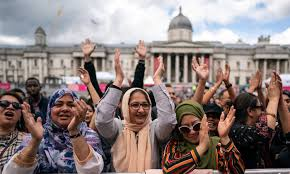The Diaspora’s Duty to Pakistan

The Pakistani diaspora, spread across continents and comprising millions of individuals, has long been one of the country’s greatest assets. This global community has played a pivotal role in shaping the international perception of Pakistan. Whether through professional achievements, philanthropic contributions, or cultural representation, overseas Pakistanis have consistently carried with them the spirit and resilience of their homeland. As the face of the country in foreign lands, they serve not just as citizens abroad, but as unofficial ambassadors of Pakistan’s culture, values, and interests.
However, recent trends have raised concerns. A growing number within the diaspora appear increasingly polarized, with some prioritizing political affiliations or aligning with external agendas at the expense of Pakistan’s broader national interest. This politicization of diaspora identity has led to a growing disconnect with the domestic population, the spread of divisive narratives, and a weakening of Pakistan’s credibility on international platforms. The very community once lauded for projecting a positive image of Pakistan now faces the risk of becoming fragmented and inward-looking.
This shift has had unintended consequences. Instead of fostering unity and progress, segments of the diaspora have become echo chambers of political discontent, driven more by partisan narratives than by a genuine desire to contribute to Pakistan’s growth. When such divisions play out publicly on global stages—especially through media, protests, and digital platforms—they do not go unnoticed. The world sees a community at odds with itself, appearing disconnected from the state it claims to represent. In a time when soft power and public diplomacy are as critical as traditional diplomacy, this dissonance undermines Pakistan’s global standing.
Moreover, the credibility of diaspora voices diminishes when they become tools for narrow political agendas. Their strength lies in their ability to present Pakistan in a positive, unified light—to advocate for its progress, to attract investment, to influence policy in host countries, and to serve as a link between Pakistan and the global community. When this role is overshadowed by internal conflict and public opposition to national institutions, the damage is not just reputational—it is structural. It weakens Pakistan’s leverage in global discourse, impacts foreign relations, and discourages international engagement.
The importance of a united diaspora cannot be overstated. A cohesive, constructive overseas community can become a bridge—connecting cultures, facilitating trade and investment, enhancing educational exchange, and supporting innovation. In many cases, diaspora communities have been instrumental in building robust bilateral ties between their host nations and their countries of origin. For Pakistan, with a diaspora that ranks among the largest globally, this is a powerful opportunity. But it requires a shift in mindset—one that prioritizes national interest over personal politics, and unity over division.
Championing a shared vision of progress is the need of the hour. This does not mean suppressing dissent or homogenizing opinion; rather, it calls for a collective maturity to engage in discourse that uplifts rather than undermines. Patriotism from afar is best expressed through contributions that build the nation, not by narratives that weaken it. The diaspora must remember that their influence is shaped not just by what they say, but by how they are perceived. Divided voices diminish that influence; unified voices amplify it.
For the diaspora to truly fulfill its potential, there must be a return to its original strength—a sense of purpose rooted in love for Pakistan, a desire to see it flourish, and a willingness to rise above personal politics for the greater good. Their impact on remittances, foreign investment, education, and global advocacy is immense. This influence must be harnessed with responsibility and foresight.
The world today is more interconnected than ever. What happens in a protest in Washington, London, or Toronto can make headlines in Islamabad within minutes. Similarly, narratives on social media carry far beyond the local networks of their origin. In such a landscape, the Pakistani diaspora must be conscious of its power and the weight of its representation.
A divided diaspora harms Pakistan’s image and credibility globally. A unified diaspora, on the other hand, has the power to bridge the nation with the world, promoting respect, cooperation, and shared success. It is time to reclaim that role—not through confrontation, but through collaboration. Not through blame, but through contribution. The diaspora must decide whether to be a symbol of pride for Pakistan, or a source of division. The choice is theirs—but the consequences will be shared by the entire nation.











